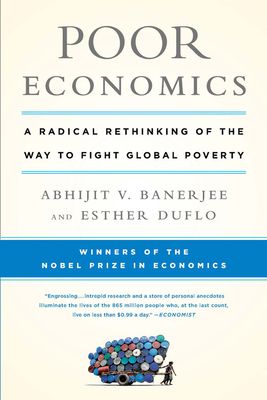Home
Rethinking Education and Poverty
Loading Inventory...
Barnes and Noble
Rethinking Education and Poverty
Current price: $77.00


Barnes and Noble
Rethinking Education and Poverty
Current price: $77.00
Loading Inventory...
Size: Hardcover
*Product Information may vary - to confirm product availability, pricing, and additional information please contact Barnes and Noble
How can new ways of thinking about education improve the lives of poor students?
In
Rethinking Education and Poverty
, William G. Tierney brings together scholars from around the world to examine the complex relationship between poverty and education in the twenty-first century. International in scope, this book assembles the best contemporary thinking about how education can mediate class and improve the lives of marginalized individuals.
In remarkably nuanced ways, this volume examines education's role as both a possible factor in perpetuating—and a tool for alleviating—entrenched poverty. Education has long been seen as a way out of poverty. Some critics, however, argue that educational systems mask inequality and perpetuate cycles of poverty and wealth; others believe that the innate resilience or intellectual ability of impoverished students is what allows those individuals to succeed.
grapples in turn with the ramifications of each possibility.
Throughout these compelling, far-reaching, and provocative essays, the contributors seek to better understand how local efforts to reduce poverty through education interact—or fail to interact—with international assessment efforts. They take a broad historical view, examining social, economic, and educational polices from the postWorld War II period to the end of the Cold War and beyond. Although there is no simple solution to inequality, this book makes clear that education offers numerous exciting possibilities for progress.
In
Rethinking Education and Poverty
, William G. Tierney brings together scholars from around the world to examine the complex relationship between poverty and education in the twenty-first century. International in scope, this book assembles the best contemporary thinking about how education can mediate class and improve the lives of marginalized individuals.
In remarkably nuanced ways, this volume examines education's role as both a possible factor in perpetuating—and a tool for alleviating—entrenched poverty. Education has long been seen as a way out of poverty. Some critics, however, argue that educational systems mask inequality and perpetuate cycles of poverty and wealth; others believe that the innate resilience or intellectual ability of impoverished students is what allows those individuals to succeed.
grapples in turn with the ramifications of each possibility.
Throughout these compelling, far-reaching, and provocative essays, the contributors seek to better understand how local efforts to reduce poverty through education interact—or fail to interact—with international assessment efforts. They take a broad historical view, examining social, economic, and educational polices from the postWorld War II period to the end of the Cold War and beyond. Although there is no simple solution to inequality, this book makes clear that education offers numerous exciting possibilities for progress.


















